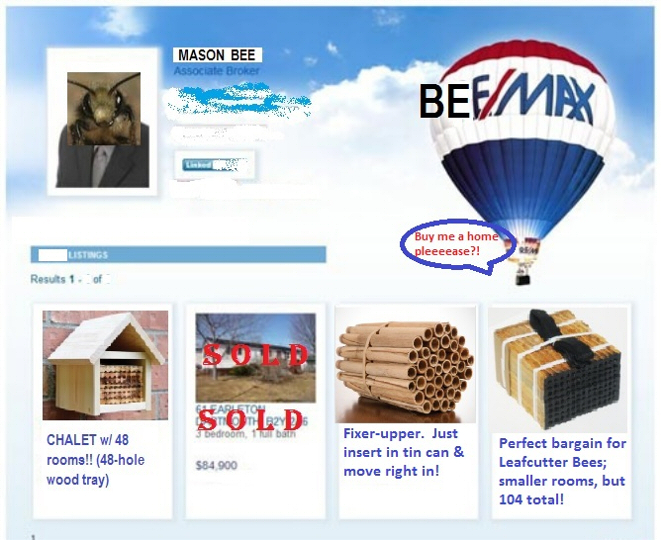Mason bees, or orchard bees, are prodigious pollinators. Unlike honey bees, mason bees are solitary (and native to the Americas) and, as such, all females are fertile and produce eggs which they lay in small deep holes packed with food (a pollen and nectar mix), and seal with mud.
Several species of mason bees occur naturally in the northeast, and when females are active, they have to find just the right nesting site. If you provide them a good nesting site, they will quickly move in.
Agricultural Hall has several living configurations to choose from -- from dirt-cheap digs to splendid "Chalet" accommodations. It's all about the same to the bees.
Here are the latest listings. More supplies and information available at Agricultural Hall. Call or stop by:

